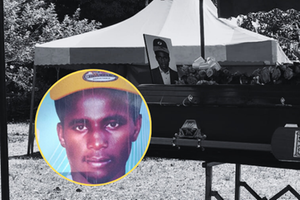Women in sexual exploitation case at tea farm remind us of two kinds of pain

Tea pickers on a farm in Bomet County on September 7, 2023.
What you need to know:
- I was a victim of sexual harassment a few years ago while working as an editor in the newsroom.
- I always thought that I would know exactly what to do if something like that happened to me and that I would take the fight to the highest possible office.
- But I froze in fear when it happened.
In the first episode of the first season of House of Cards, a show about power and manipulation in the political arena, Francis Underwood (Kevin Spacey), the main character, explains that there are two kinds of pain: the sort of pain that makes you strong, and useless pain—the sort that is only suffering.
Anyone who has experienced sexual harassment knows that the trauma can be hard to place. I believe that this specific pain—whether psychological or physical—is only useful when it’s shared or reported. It’s only then that healing begins for the victim and that justice becomes a possibility.
I was a victim of sexual harassment a few years ago while working as an editor in the newsroom. As a vocal feminist, I always thought that I would know exactly what to do if something like that happened to me and that I would take the fight to the highest possible office. But I froze in fear when it happened.
The words I could have used to articulate my disgust and anger dissolved in my mouth. All I could do was run off, before following up with a strongly worded WhatsApp message to rebuke his actions. He apologised in a message, and that was it. I haven’t shared this publicly before because a part of me regrets how I acted.
I ask myself whether I should have reported the case to the human resources manager, or even my manager, or whether there was anything I could have done differently. But then I remember that I had also considered how my colleagues would perceive me in the newsroom if he were to be publicly shamed or lose his job. My fear of retaliation, stigma, and not being believed held me back, as it has for many women before me.
For the women on Kenyan tea farms who undergo sexual harassment, it is also about power dynamics and economic dependence. In an exposé titled True Cost of Our Tea: Sexual Abuse on Kenyan Tea Farms by the BBC's Tom Odula, one woman said of a perpetrator, "It is just torture; he wants to sleep with you, then you get a job."
One of the men implicated in the exposé, John Chebochok, was all set to be sworn in as the newly elected director of Toror Tea Factory before five petitioners moved to court, saying that approving him as director would lead to a real and imminent threat to the financial stability and reputation of Tegat Tea Factory Limited, which owns Toror Tea Factory, as he did not meet the provisions of Chapter 6 of the Constitution of Kenya, which include integrity, leadership accountability, and adherence to ethical standards. The government also recently nullified his election as KTDA director, and though there was no mention of the pending case, it’s still a win in my view.
I hope the women who came forward in the exposé feel vindicated. I hope they know that their pain was not useless.
The writer comments on social and gender topics (@FaithOneya; [email protected]).





